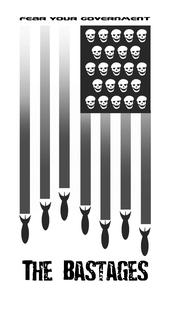punk (p ngk)
noun.
1. a. An inexperienced or young person, especially a member of a
      &n
bsp rebellious counterculture group.
    b. An aggressive and violent young criminal.
    c. Rock music with deliberately offensive lyrics expressing anger and
      &n
bsp social alienation; in part a reaction against progressive rock.
2. Punk is an anti-establishment music movement that began about 1974-
    1975 (although precursors can be found several years earlier),
    exemplified by The Ramones, the Sex Pistols, The Voidoids, Sham 69,
    The Damned, and The Clash. The term is also used to describe
    subsequent music scenes that share key characteristics with those
    first-generation "punks," and it is often applied loosely to mean any
    band with "attitude" or "youthful aggression." The term is sometimes
    also applied to the fashions or the irreverent "DIY" ("do it yourself")
    attitude associated with this musical movement.
Characteristics:
Punk rock emphasized simple musical structure and short songs (the early UK punk fanzine Sniffin' Glue in 1977 famously included drawings of three chord shapes captioned, "This is a chord, this is another, this is a third. Now form a band"). Typical instrumentation for a punk band is a drum kit, one or two electric guitars (playing highly distorted power chords), electric bass, and vocals; songs are rarely over three minutes in length, often as brief as 90 seconds. Punk songs are almost always in 4/4 time and use a verse-chorus structure.
Punk lyrics introduced a confrontational frankness of expression and social and political relevance that had been missing from contemporary music. Some songs dealt with unemployment, boredom and other grim realities of urban life; some were openly disparaging of governments and monarchies; and still others were decidedly anti-romantic in depictions of sex and love. Other themes associated with punk rock include non-conformity and anarchy/political movements.
